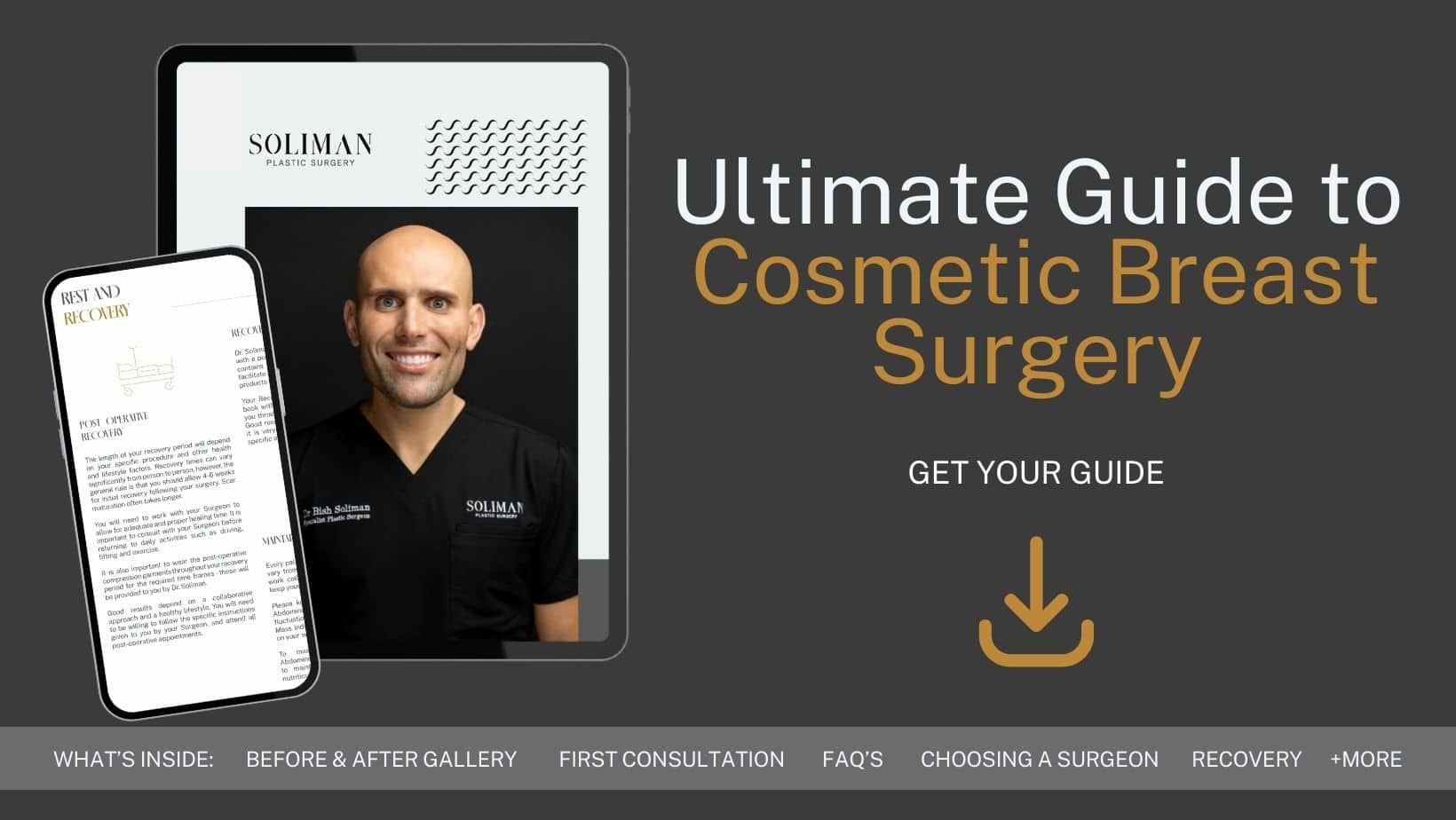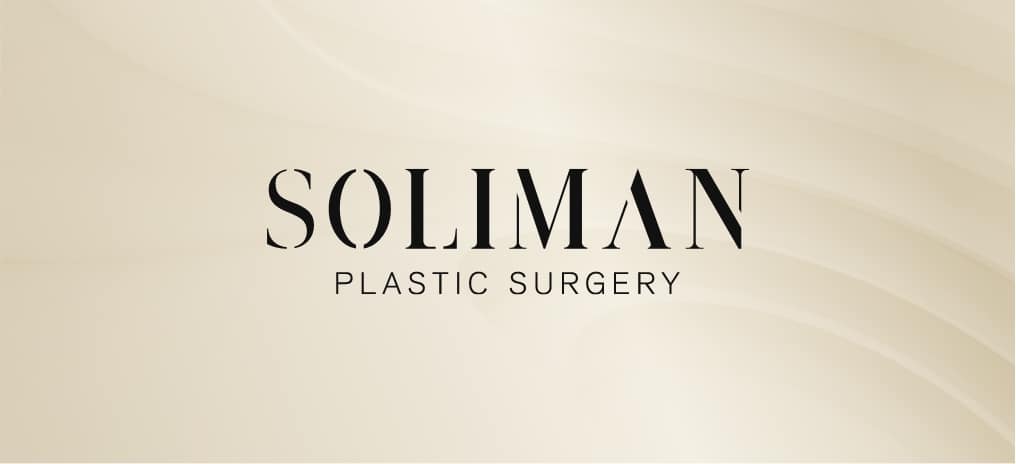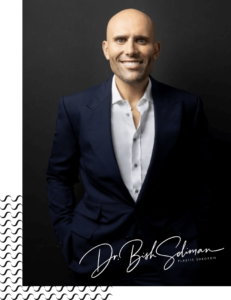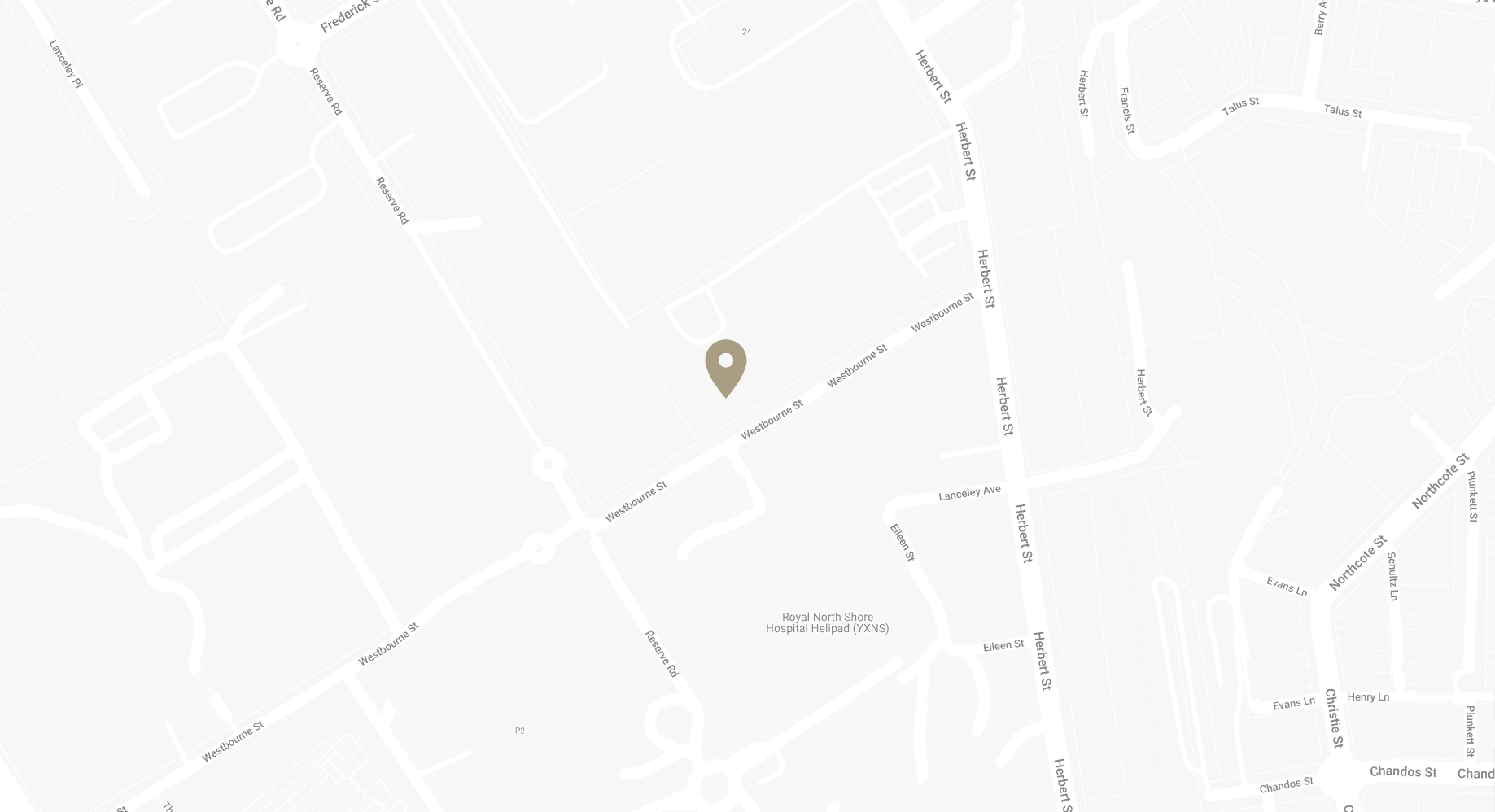Steps to Take to Prepare for Breast Reconstruction Surgery
Undergoing DIEP (Deep Inferior Epigastric Perforator) flap surgery can be a significant milestone in your life. This procedure, known for its ability to use your own abdominal skin and fat to reconstruct the breast, offers a natural look and feel post-surgery. However, the path to recovery and the outcome you desire begins long before the surgery itself. Preparing for your DIEP flap surgery is an important stage of the process.
Here’s a structured guide from Sydney Specialist Plastic Surgeon Dr Bish Soliman to help you navigate through the process of preparing for your DIEP flap surgery with confidence and ease.
Download Dr Bish Soliman Cosmetic Breast Surgery Guide

How to Prepare for DIEP Flap Surgery
DIEP flap surgery is a breast reconstruction procedure that utilises your own body’s tissue, offering a natural look and feel post-surgery. Here are some aspects to consider when preparing for DIEP flap surgery:
1. Educate Yourself
Do your research
Begin your journey with thorough research. The Deep Inferior Epigastric Perforator (DIEP) flap surgery is a complex procedure that involves transferring skin and fat from the lower abdomen to the chest to reconstruct the breast without sacrificing muscle. Understanding the intricacies of this surgery, including how it’s performed, its benefits over other reconstructive options, and potential risks, is crucial. Check out reputable sources such as medical journals, hospital websites, and breast cancer support organisations for accurate information.
Click here for our DIEP information sheet!
Click here for our Laparoscopic DIEP article!
Consultation
Consultations with your surgeon are invaluable. These sessions are your opportunity to gain clarity on the procedure, understand the surgeon’s approach, and discuss your medical history and expectations. Prepare a list of questions beforehand. Inquire about the surgeon’s experience with DIEP flap surgeries, the expected outcomes, recovery process, and any concerns specific to your health condition. This dialogue is essential for building trust and ensuring you’re making an informed decision.
2. Set Realistic Expectations
Visual Aids
Requesting before and after photos of previous patients who have undergone the same surgery can be incredibly insightful. These visuals can provide a realistic expectation of the surgical outcomes. However, it’s important to remember that every individual’s body is unique, and results can vary.
Outcome Discussions
Having a candid conversation about what is achievable, considering your body type, health condition, and personal goals, is crucial. Your surgeon should be able to guide you on what to expect in terms of breast size, shape, and appearance post-recovery. Setting realistic expectations will help in achieving satisfaction with the surgical outcome and can significantly impact your emotional recovery.
3. Optimise Your Health
Optimising your health before surgery can significantly influence your recovery and the success of the surgery. This involves taking steps to improve both your physical and mental health.
Physical Health
A balanced diet plays a role in preparing your body for surgery and recovery. Focus on consuming a variety of foods rich in vitamins, minerals, and proteins that support wound healing and immune function. Foods high in vitamin C, zinc, and protein can promote tissue repair and reduce infection risk. Consider consulting a nutritionist for a tailored pre-surgery diet plan.
Activities such as walking, stretching, and gentle yoga, approved by your plastic surgeon, can keep your body in optimal condition for the surgery. Always listen to your body and avoid overexertion.
Mental Health
Building a robust support system is crucial for your mental well-being. Connect with family, friends, or support groups who understand what you’re going through. These connections can provide emotional support, practical help, and a sense of community throughout your surgical journey.
The emotional impact of undergoing DIEP flap surgery can be significant. Consider engaging in counselling or therapy sessions to mentally prepare yourself for the changes ahead. Discussing your fears, expectations, and hopes with a professional can provide coping strategies and emotional resilience. Additionally, meditation and mindfulness practices can help manage pre-surgery anxiety and stress.
4. Take Care of Logistics
Preparing for the surgery involves more than just mental and physical readiness; logistical planning is equally important to ensure a smooth process and recovery.
Medical Preparations
Complete all pre-operative tests and evaluations as recommended by your surgical team. These may include blood tests, imaging studies, and assessments to ensure you’re fit for surgery. Be prompt in completing these evaluations to avoid any delays in your surgical schedule.
Review your current medications with your surgeon. Some medications, such as blood thinners or supplements, may need to be paused or adjusted before surgery to reduce the risk of complications. Ensure your surgical team is aware of everything you’re taking, including over-the-counter drugs and supplements.
Home Preparation
Creating a comfortable and accessible recovery space at home is essential. This area should be equipped with items you’ll need post-surgery, such as pillows for elevation, a bed that’s easy to get in and out of, and easy access to a bathroom. Consider the layout of your home and make adjustments to minimise the need for stairs or extensive walking.
Stock up on supplies you’ll need during recovery. This includes ice packs for swelling, loose and comfortable clothing that’s easy to put on and take off, and any medical supplies recommended by your surgeon. Preparing meals in advance and arranging for help with household tasks can also ease your recovery process.
The Night before Your DIEP Flap Surgery
The night before your surgery is a time for final preparations. It’s natural to feel a mix of emotions, from anxiety to anticipation. Focusing on practical steps can help manage these feelings and ensure you’re as ready as possible for the day ahead.
· Fasting
Your surgical team will provide specific instructions regarding fasting before surgery. Typically, this means no food or drink, including water, past midnight or a few hours before your surgery. Fasting is crucial to prevent the risk of aspiration during anaesthesia. If you have medications that you need to take, discuss with your surgeon how to do so safely with minimal water.
· Skin Care
Showering with antibacterial soap can reduce the risk of infection post-surgery. Follow any specific skin preparation instructions given by your surgical team, such as using a particular type of soap. Avoid applying lotions, perfumes, or deodorants after your shower, as these can interfere with the surgical process or post-surgery dressings.
· Relaxation Techniques
Practicing relaxation techniques can be incredibly beneficial in managing pre-surgery nerves. Techniques such as deep breathing, meditation, or listening to calming music can help soothe anxiety. Consider guided imagery exercises, where you visualise a positive surgical experience and a smooth recovery.
· Review Your Plan
Go over your post-surgery care plan and any instructions provided by your healthcare team. Familiarising yourself with these details can help reduce anxiety and ensure you feel prepared for what comes next. Ensure you understand the immediate steps after surgery, such as how pain will be managed and how long you’ll be in the hospital.
The Day of Your DIEP Flap Surgery
The day of your DIEP flap surgery is a culmination of your preparations. While it’s normal to feel nervous, having a clear plan can help maintain a sense of calm and control.
What to Bring to the Hospital
Here is a list of items to bring with you:
- Supportive bra: Dr Soliman recommends a wireless bra that has wide shoulder straps as well as a wide supportive back. A bra with a front opening may be helpful. It can be difficult to identify the correct size before your reconstruction. Dr Soliman recommends you buy a size larger (across the band) than what you normally wear to allow room for swelling; for example, a 16C instead of a 14C. Patients are required to wear a bra once mobilising on the ward. The bra helps to support the newly formed breast, reducing swelling and bruising, while supporting the shape.
- Singlet: After the procedure Dr Soliman will fit you with an abdominal binder, which you will need to wear day and night for 6 weeks. Some patients find that this can irritate their skin, so we advise you bring a singlet with you to place as a barrier between your skin and binder.
- Toiletries, slippers, and bed wear: Loose fitting pyjama tops with buttons are recommended while in hospital.
Arrival at the Hospital
Arrive at the hospital at the designated time given by your surgical team. This is usually a few hours before your scheduled surgery to allow time for the check-in process and any last-minute preparations. You’ll likely be asked to complete some paperwork if not already done.
Before the surgery, you’ll meet with your surgeon and anaesthesiologist. This is a good time to ask any last-minute questions you might have and discuss any concerns. They will review the surgery plan with you one more time and confirm consent for the procedure. This is also when the surgical site may be marked, and final preparations are made.
Pre-Operative Preparations
You’ll be asked to change into a hospital gown and may be given pre-operative medications. These can include medications to reduce anxiety, prevent infection, or manage other conditions as needed. Your healthcare team will monitor your vital signs and prepare you for the transition to the operating room.
Before the surgery begins, Dr Bish Soliman will mark the surgical plan on your abdomen and breasts and the anaesthesiologist will administer anaesthesia to ensure you are asleep and pain-free during the procedure. They will explain the process to you and monitor you closely throughout the surgery to ensure your safety and comfort.
Post-Surgery Transition
After the surgery, you’ll be moved to a recovery room where your healthcare team will monitor your vital signs as you wake up from anaesthesia. This period is crucial for ensuring there are no immediate complications. You may feel groggy or disoriented as the anaesthesia wears off, which is normal.
Once stable, you’ll be transferred to your hospital room where your recovery journey begins. The first few hours post-surgery are critical for monitoring. Your medical team will manage your pain and monitor for any signs of complications. They will also begin guiding you through the initial steps of recovery, such as deep breathing exercises to prevent pneumonia.
FAQs about Preparing for Your DIEP Flap Surgery
How long should I stop smoking before my DIEP flap surgery?
- It’s recommended to quit smoking at least 6 weeks before your surgery. Smoking can significantly impair your body’s ability to heal, increasing the risk of complications during and after the procedure. Discuss cessation strategies with your plastic surgeon to improve your surgical outcomes.
Can I continue taking my vitamins and supplements before surgery?
- You should inform your surgeon about all vitamins and supplements you’re taking. Some products, especially those containing vitamin E, omega-3 fatty acids, and certain herbal supplements like ginkgo biloba, can increase bleeding risk. Dr Soliman may advise you to stop taking these at least 2 weeks before your surgery.
What should I do if I develop a cold or illness before my surgery?
- If you become ill before your surgery, it’s crucial to inform your surgical team as soon as possible. Depending on the severity of your symptoms and the nature of your illness, your surgery may need to be rescheduled. This is to ensure your safety and optimise your recovery.
How can I prepare my skin for surgery?
- In addition to the pre-surgical antibacterial shower, maintain good skin hygiene in the weeks leading up to your surgery. Keep your abdominal area clean and moisturised, but avoid any harsh treatments or products that could irritate your skin. Dr Soliman may provide specific instructions based on your skin type and condition.
Is there anything I should do to prepare my home for my return after surgery?
- Yes, preparing your home for your return is an important step. Ensure that essential items are within easy reach and that you have a comfortable place to rest that doesn’t require climbing stairs. Consider safety modifications, such as securing rugs to prevent slips and installing a shower chair. Arrange for someone to help with tasks like cooking, cleaning, and shopping during your initial recovery period.
Further Reading about DIEP Breast Reconstruction with Sydney Consultant Plastic Surgeon Dr Bish Soliman
- Read more about Things to Pack in Your Hospital Bag for Cosmetic or Plastic Surgery
- Read more about DIEP Flap Breast Reconstruction: What to Expect
- Read more about Recovery after Breast Reconstruction Surgery (DIEP)
- Read more about Medicare for DIEP Breast Reconstruction
- Read more about What is a Laparoscopic DIEP flap?
- Read more about Who Are the Best DIEP Breast Reconstruction Surgeons in the World?
- Read more about DIEP Flap Breast Reconstruction and Radiotherapy
- Read more about DIEP Flap Reconstruction – Common Concerns and Myths
- Read more about What to Wear after DIEP Flap Reconstruction
- Read more about Lymphatic Drainage Massage Post Operatively after DIEP
- Read more about Combining DIEP Flap with Other Reconstructive Techniques
- Read more about Secondary Procedures after DIEP
- Read more about How to Reduce Scars after DIEP Surgery
Medical References about DIEP Breast Reconstruction
- Breast reconstruction with flap surgery – Mayo Clinic
- What to expect with a DIEP flap breast reconstruction – Cancer Australia
- Pioneering progress: An in-depth exploration of DIEP flap breast reconstruction techniques
- The power of support: How peer networks shape reconstruction experiences for breast cancer survivors
- A cost-effectiveness analysis of DIEP vs free MS-TRAM flap for microsurgical breast reconstruction



